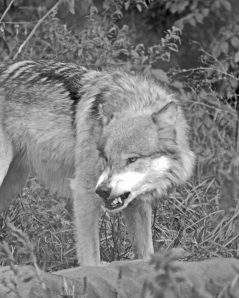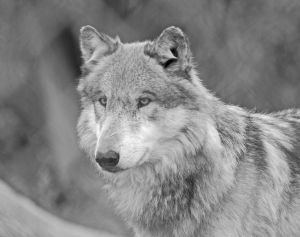
I see a lot of postings in my online travels talking about “negativity.” On Facebook we are regularly exhorted to avoid negativity. Have negative people in your life? Chuck ’em! Negative thoughts? Change ’em! Bad things happen to you? Ignore ’em!Turn that frown upside down! And under no circumstances should you be anything less than a cheery paragon of Zen, eliminating anything remotely troubling from your outlook like a kind of existential vacuum cleaner. Have breast cancer? Then you’d better get your chin up, because cancer loves negativity! It makes tumors grow! So be positive. I know it’s rough with that wire sticking out of your boob, but that’s no excuse to be churlish.
Have a traumatic childhood? Nasty divorce? Financial downfall? You can’t let it control you, brush that shit off, and for God’s sake, don’t be negative. Perhaps even worse is the idea peddled by some that if you entertain negative emotions, you invite negative events.
This is all toxic nonsense. If I eliminated every negative person from my life, my options for relationship of any kind would be vanishingly narrow. The population of that category of people is very small, and is not even entirely human: it consists roughly of my dog and the Dalai Lama. If I took seriously the idea that I should eliminate everyone negative from my life, my son would need to find a new mother. None of you have seen him at 6:45 a.m., clutching his iPad which is playing “Eye of the Tiger” on an endless loop because that’s his wakeup music, and also the soundtrack to the endless series of whines about being required to exit the bed every morning to attend fifth grade. The dirty little secret is that everyone is negative sometimes. Listen, I get what they’re talking about — those people who are constantly whining about one thing or another, clinging to rage like a life raft, railing forever about the injustices of the world. But the irony is that this sort of behavior is just a substitute for ancient pain they’ve never really worked through. So they just traded out one negativity for another — the real issue got stuffed, but the refrain of negativity sings on.
There’s a palpable fear to all these messages, and advice that reeks of fear always makes me suspicious. In my view, the best way to stay mired in negativity is to fear it, deny it, suppress it, hack it off, condescend to it, or develop contempt for it. Anger, fear, sadness, pain, these are all parts of the human condition, part of being whole. Once I started accepting them and honoring them with gentleness, I discovered that they were very brief house guests. They still visit, but they don’t trash the place anymore. And they are no longer permanent squatters in my emotional basement. I’m more positive. Let the negative feelings come, ask them with curiosity how they’ve been and what they’re doing in your part of the woods. When they’ve had their due, gently but firmly tell them it’s time to move on. But usually, they’ll leave before you have to ask them to go.
Negative feelings are like an insistent toddler that wants a turn playing with the toys. Give him a turn, and he’ll get bored in ten minutes and move on.
I refuse to entertain the idea that I am inviting cancer or car wrecks or other bad juju by participating in a normal, necessary part of the human experience. That’s utopianism, which is nothing more than denial. And ironically (but elegantly) you will notice that it’s enforced with a heavy dose of guilt.
Not exactly one of the positive sensations.


